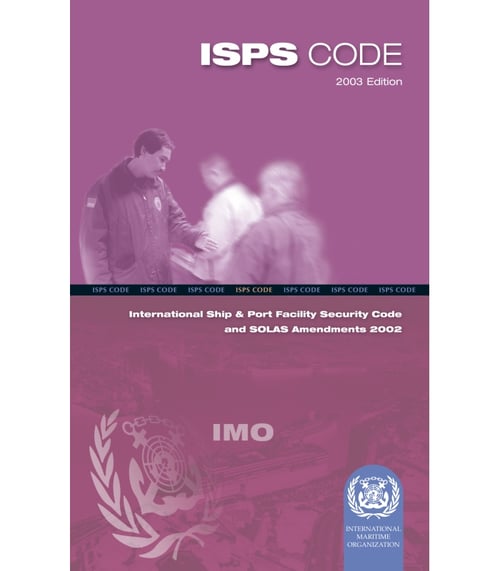MARSEC
The International Ship and Port Facility Security (ISPS) Code is an amendment to the Safety of Life at Sea (SOLAS) Convention (1974/1988) on minimum security arrangements for ships, ports and government agencies.
ISPS
The International Ship and Port Facility Security Code (ISPS Code) is an International code that was conceived following the September 11th 2001 terrorists attacks in the USA.
It primary purpose is to identify and counter any terrorist threat to the Maritime Industry particularly against ships and ports. The code also serve’s to improve security against armed robbery, theft and piracy. The code came into force in 2004 and prescribes responsibilities to:
- Governments
- Shipping companies,
- Shipboard personnel
- Port/facility personnel
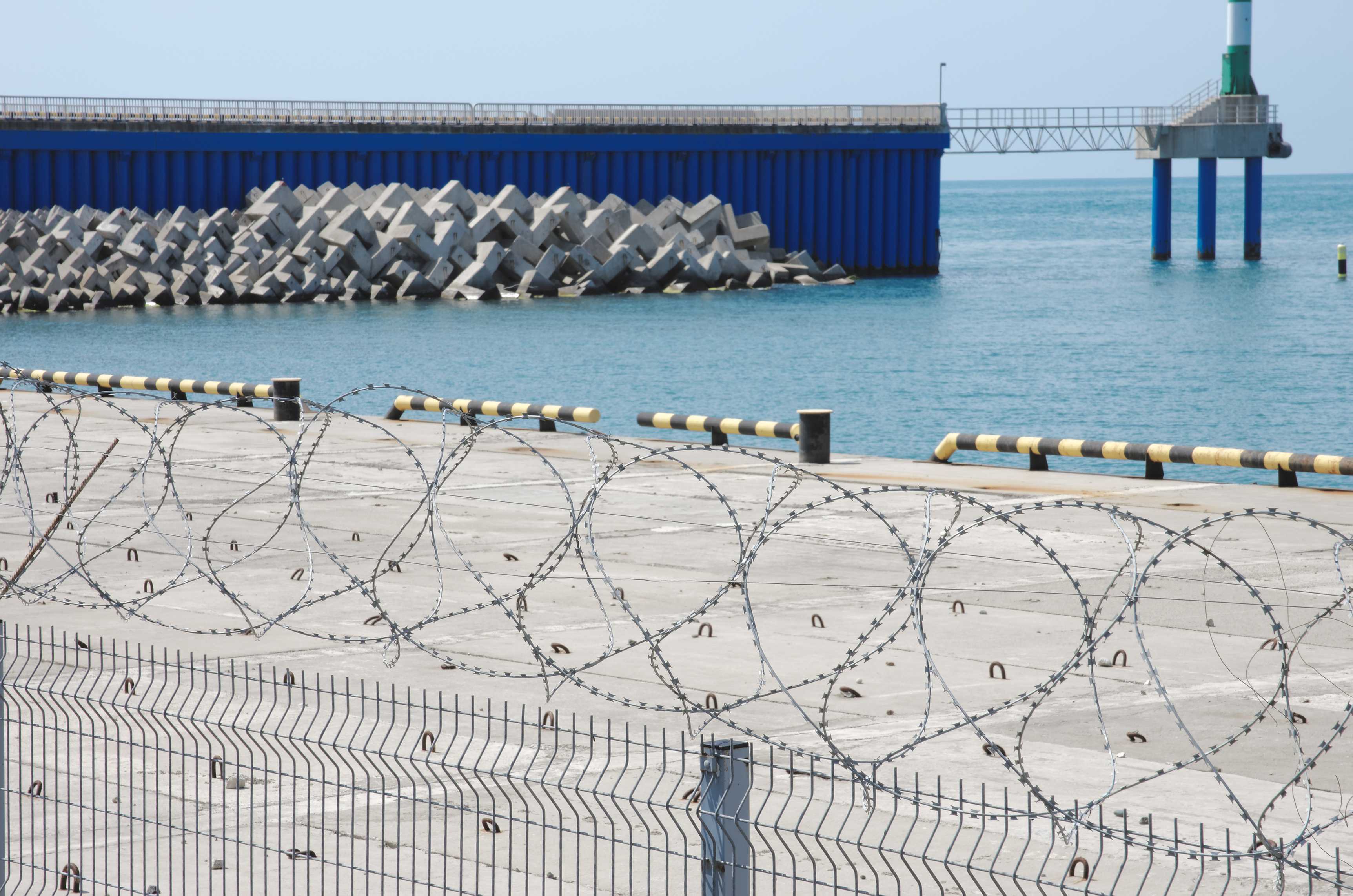
ISPS establishes mandatory minimum standards that the shipping and port industries must achieve in order to comply with it.
When a port or ship reaches the required standard it is said to be ‘compliant with ISPS’. Non-compliant ships can be prevented from sailing from or entering ports. Likewise some countries will not accept ships that have sailed from non-compliant ports.
Ships and Ports are assessed for compliance through a process of
• Assessment
• Planning
• Verification
• Certification
• Re-verification
Security Levels

Level 1 Normal
This is the minimum standard of security and requires the following to be maintained:
- Control access to ship
- Control embarkation of persons / effects
- Monitor restricted areas/ authorised access
- Supervise cargo/stores handling
- Security communication must be available

Level 2 Heightened
Everything done at level 1 plus incrementally increased measures for level 2.
For example; at level one – we are checking the identity of all persons seeking to board the ship.
At level 2, we are checking identities and searching a percentage of those seeking to board the ship.

Level 3 Exceptional
(Attack Imminent)
At level three, the ship operates all the procedures from level 1 and 2 plus the incremental measures contained in the ship security plan. Ships normally only go to level 3 on the instruction of a flag or port state. When this occurs the flag or port state will provide specific advise and instructions to accompany the order.
Level 3 means reliable intelligence has been received that the ship itself or the waters in which it is sailing are likely to be under immediate attack.
For UK flagged vessels, this responsibility of setting ISPS security levels is delegated to Maritime Security Section of the Department for Transport.
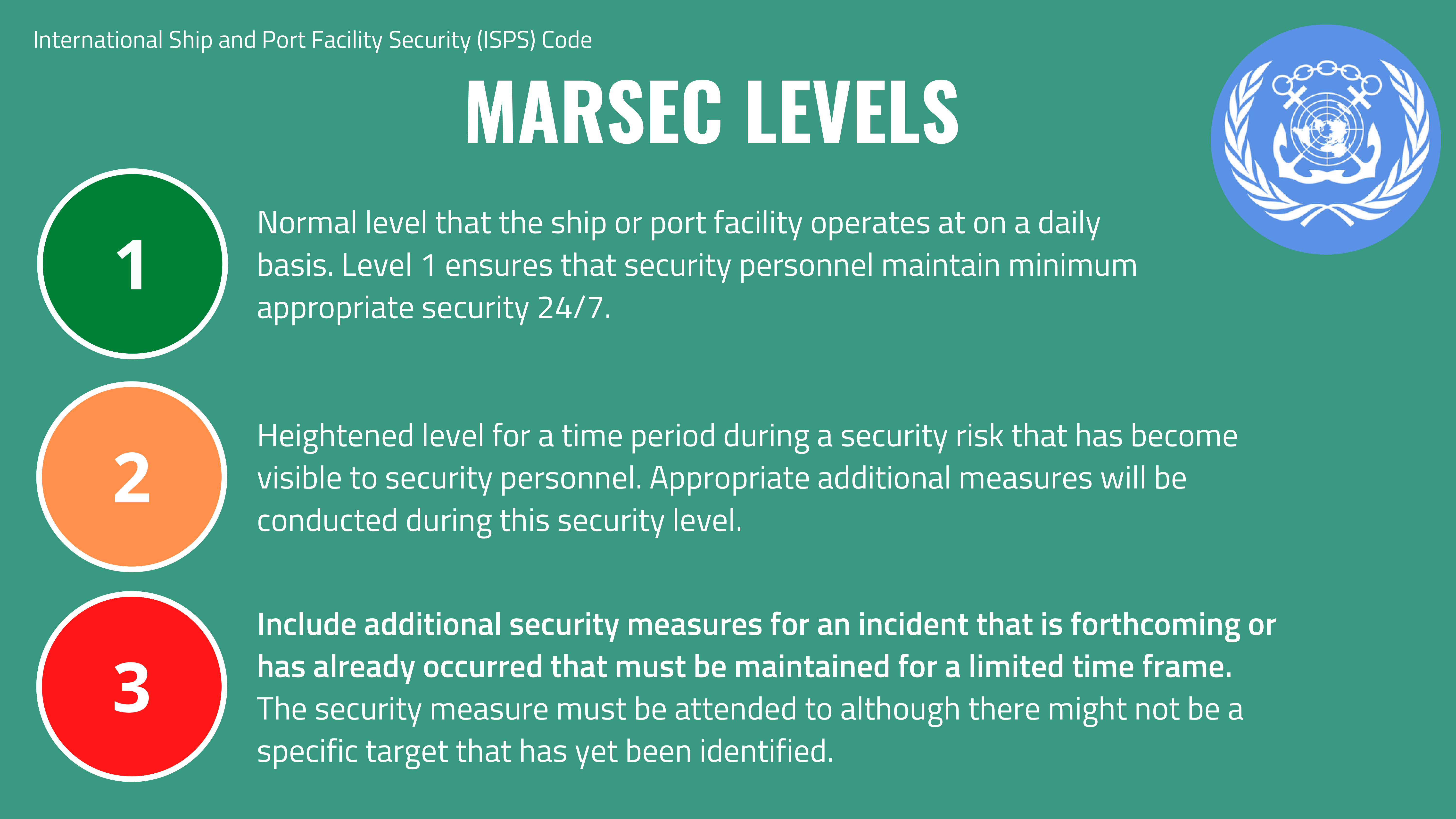
Ships Security Assessment
The assessment stage is formally known as a Ships Security Assessment and is arranged by the Company Security Officer (CSO). The assessment identifies all security risks applicable to that individual vessel and takes into account;
• The physical layout and type of ship
• Key shipboard operations that need protecting
• The trading area of the ship
• Outside factors that may cause the ship to be a target for attack.
Ship Security Plan And Certification
Once completed the CSO will arrange for a Ships Security Plan to be produced using the findings of the assessment.
When the Company is satisfied with it is submitted to the ships Flag State for audit and approval. If approved the Ship is issued with an ‘Interim International Ship’s Security Certificate’ which is valid for only 6 months.
A ship may operate with an interim certificate but will be penalized for any non-compliance with the code. During the initial 6 months of the interim certificate the Inspectors/Surveyors of the flag state will carry out an ‘initial verification.’ This involves comprehensively testing the ship security plan, including crew knowledge. Security related equipment on the vessel will also be examined and inspected to ensure it is ‘fit for purpose.’ If passed the ship will then be issued with an International Ship Security Certificate which is valid for up to 5 years.

ARMS
Reporting - Analysis – Insight - Recommendations
Your trusted security portal
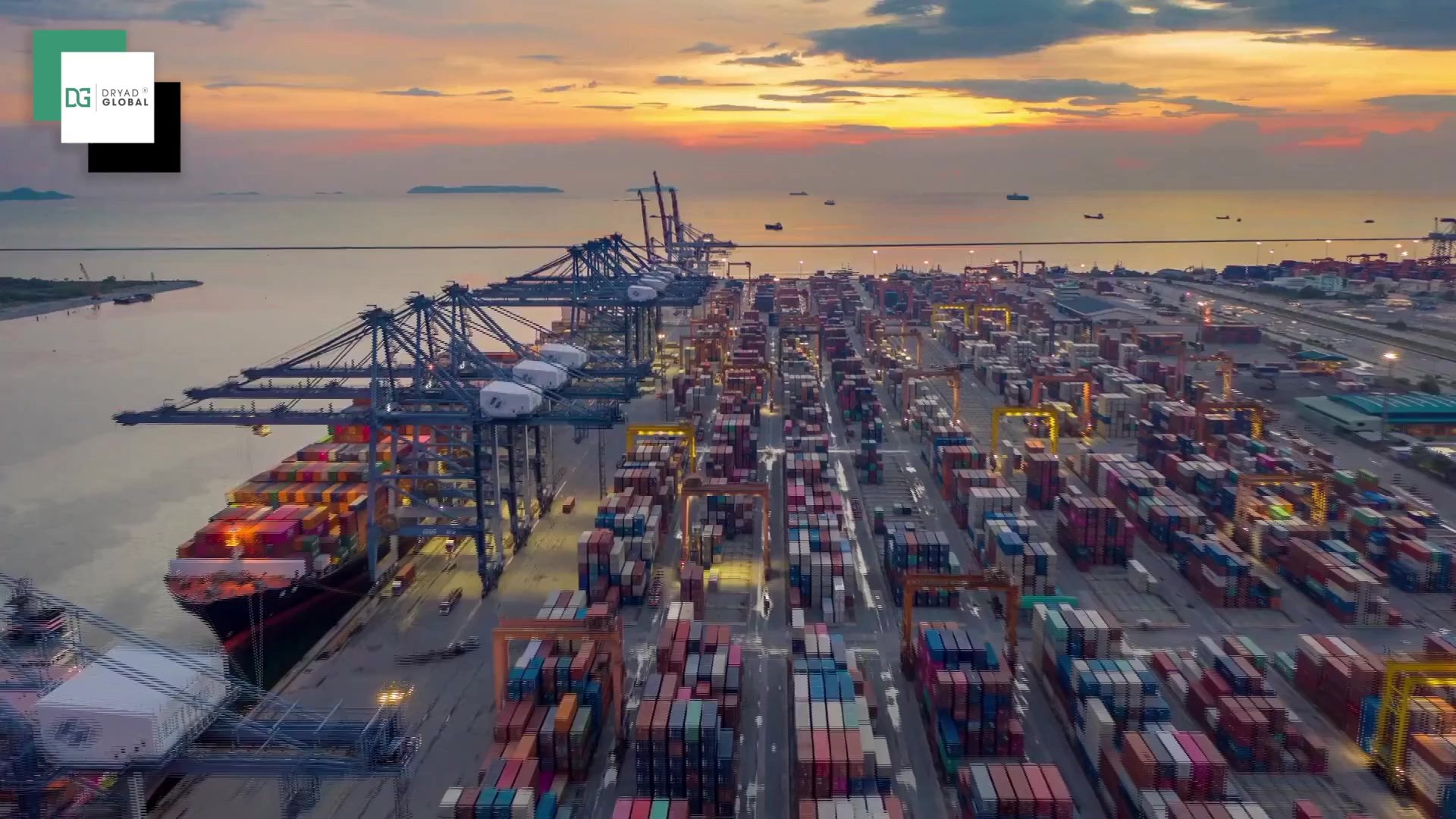
TRITON
SCOUT
Transit Risk - Port Risk - Regional Risks
Premium reporting focused on you
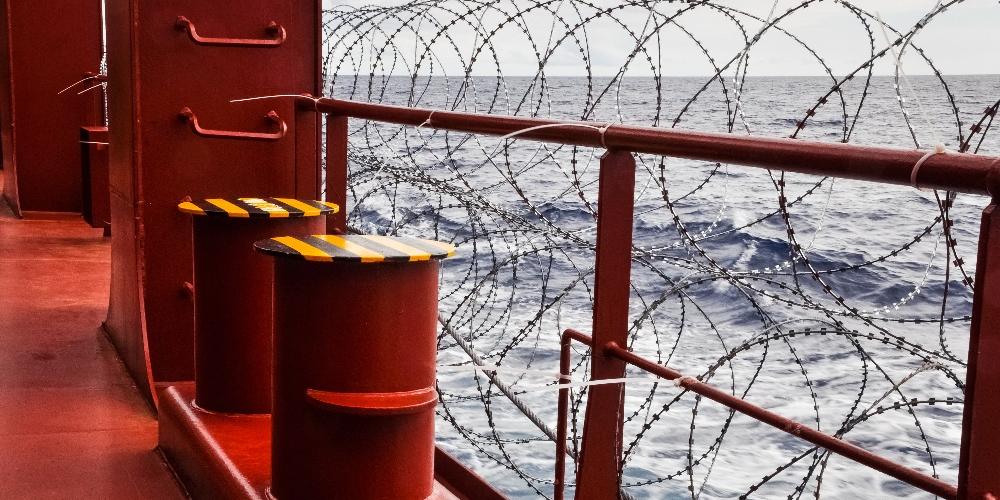
ORION
PROTECT
Protection - People - Assets
Armed Guards - Defense - Insurance


